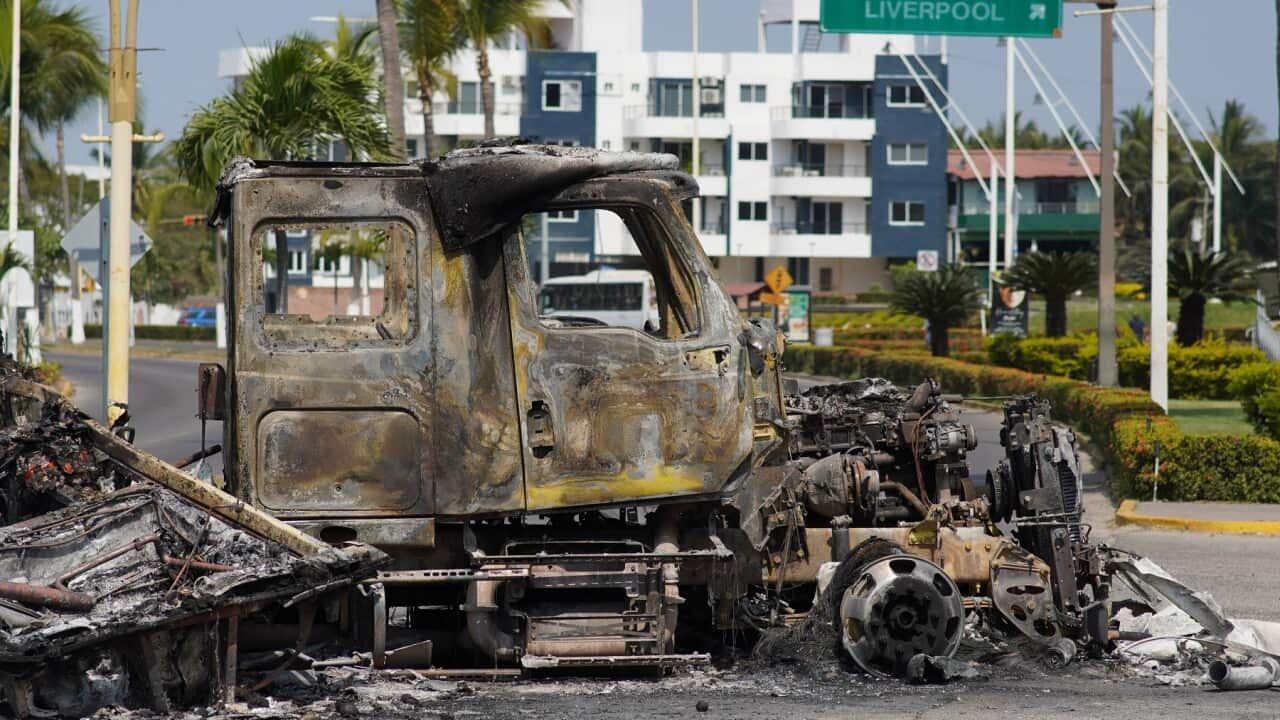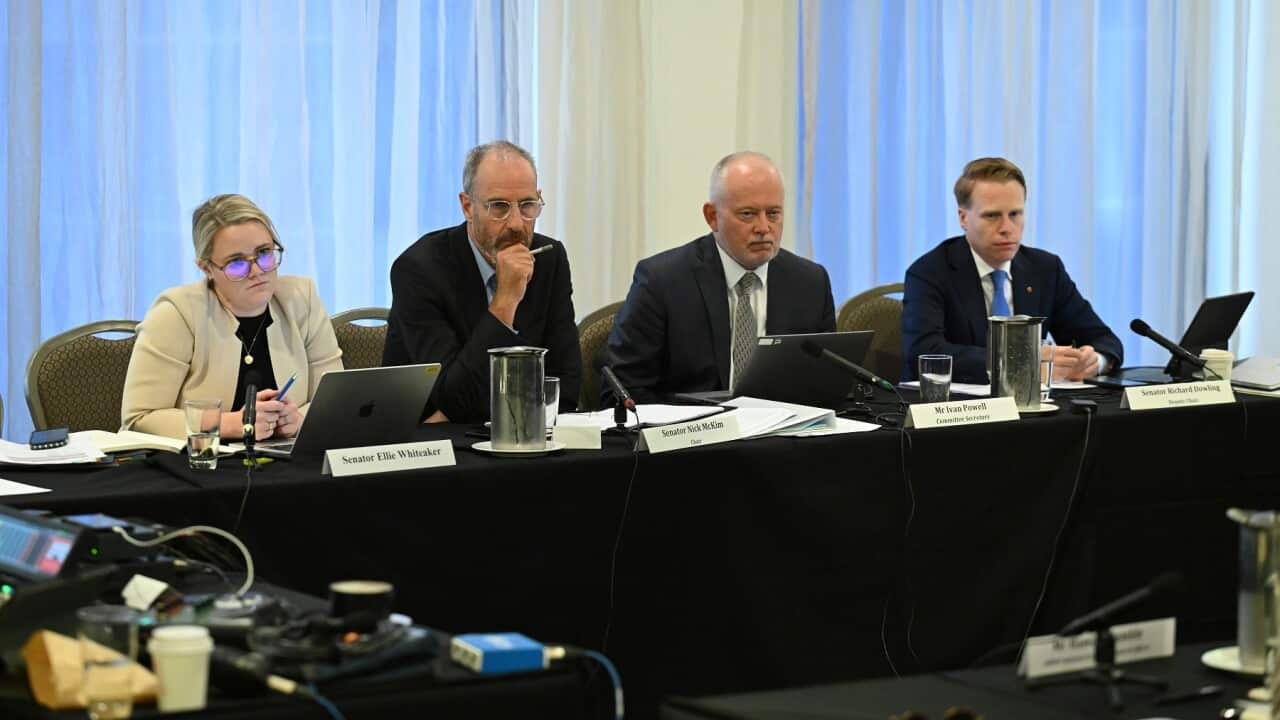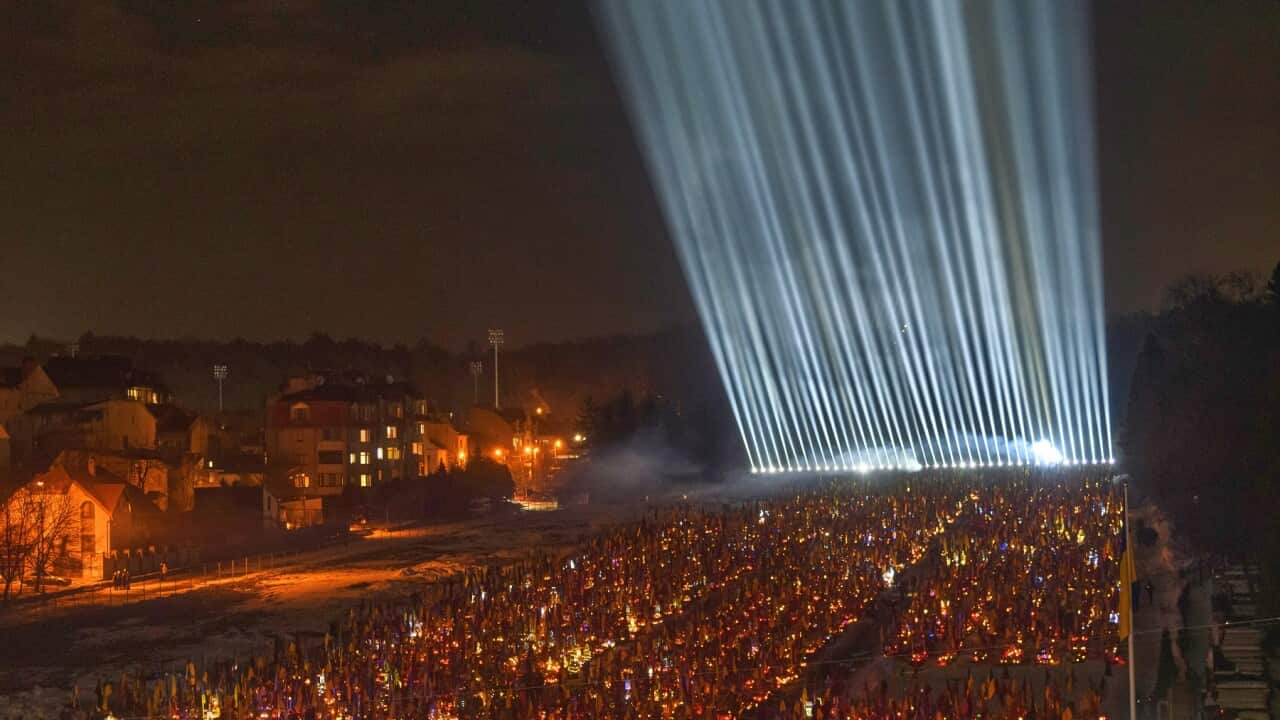Listen to Australian and world news, and follow trending topics with SBS News Podcasts.
TRANSCRIPT
[[Broadcasters note - this item has been cleared by SBS Legal]]
[[INTRO]]
“And I truly didn't have a clue what I was walking into. I just remember being so scared because I felt so powerless.”
That's 33-year-old Chrissy, recalling the traumatic experiences she had navigating the criminal justice system as a victim-survivor of domestic and sexual violence.
Chrissy is among many victim-survivors who feel disempowered by their lack of knowledge of processes and legal systems in sexual assault cases.
The Wollongong-based mother was first forced to navigate the criminal justice system in 2021, just weeks after having a baby.
Chrissy fell pregnant two weeks after meeting her perpetrator in May 2021, and says she experienced almost every kind of abuse at the hands of her perpetrator virtually from the beginning of their relationship - including emotional, physical and sexual violence.
Chrissy first interacted with police after her perpetrator falsely filed a missing persons report for Chrissy and her child.
What followed was a long and emotionally taxing three-and-a-half year legal journey which ultimately resulted in her perpetrator being sentenced to 10 years in prison earlier this month for five of the eight charges filed against him.
“And I remember sitting there and thinking, what am I supposed to do? I've got no idea what I'm walking into. And I truly didn't have a clue what I was walking into. I just remember being so scared because I felt so powerless again. My power was in someone else's hands. My story was in someone else's hands. My trauma, the outcome of my trauma, was in someone else's hands.”
Stories like Chrissy's are the driving force behind a new report by sexual violence advocacy organisation 'With You We Can'.
It highlights how legal literacy gaps are failing victim-survivors of sexual violence, and recommends ways to improve the system.
Sarah Rosenberg is the organisation's Executive Director and says fear is only one aspect of victim-survivors' reluctance to navigate the system.
“But also victims don't know how to engage in the first place. It's really difficult to report, no-one teaches you how to do it. It took me three different police stations to get to the point where I was signing a formal police statement. And so the system is really, it's unknowable. A system that has too many hurdles to overcome simply to get a foot through the door is a system that's shutting out the people who most need access to it.”
Chrissy confronted hurdles every step of the way.
While she recalls a positive initial interaction with a police officer, a separate detective told her she was wasting her time when she visited the station to make a statement.
With You We Can's report says attrition rates are highest at the police stage of the criminal justice system for sexual assault cases.
The report says this is largely due to police being guided by a need for evidence to support a guilty verdict, rather than address the crime itself, and still draw heavily upon rape myths.
Ms Rosenberg says something more than trauma-informed training is needed to resolve these shortcomings.
“And so I think when it comes to police beyond, of course needing training, training, training always, and in particular legal literacy training as well, they need a mandatory duty to investigate. The one job that people, that the general public think the police have is to investigate crime, but they actually have no enforceable obligation to investigate sex crimes. And when that sort of thing isn't mandated, the best of intentions can come from training, but you still might have a cop that is going to dismiss someone at the doorstep.”
Victim-survivors who make it past this initial stage and proceed to trial then face new hurdles.
Chrissy recalls briefly seeing her perpetrator on screen, despite being assured that she wouldn't have to see him if she gave evidence through an audio-visual link.
The 33-year-old suffers from a neurological dysfunction which means her body shuts down when experiencing high levels of stress, and on the fourth day of giving evidence, Chrissy says she had a seizure and was taken to hospital.
Upon returning the following day, Chrissy says the defence used her experience against her in numerous ways, including accusing her of using the hospital time to go over all of the evidence and change her answers, despite not having access to evidence outside the safe room where she appeared to the court.
“Made me feel like because I had a seizure, I was in the wrong. And that's the whole thing. You feel like you are the one on trial. Everything you say is being judged. Everything you do is being judged. And then I have a dissociation disorder. So during that, one of the very last days, he tried to say that because of my dissociation disorder, I had a different personality that was having a consensual BDSM relationship with my abuser.”
Ms Rosenberg says even legal experts in the system often aren't equipped to deliver procedural justice.
“Even the people that are meant to be doing the job are not across the nuances of what's occurring in sexual assault trials or what's not occurring in sexual assault trials, which is upholding legislative protections so that victims have procedural justice, which other than a guilty verdict, which you'd call a substantive justice outcome, a guilty or a non-guilty verdict, procedural justice is about whether the things that were meant to happen happened, whether you were treated with dignity and respect.”
Victim-survivors do not receive legal advice from prosecutors as they are witnesses to the state's case against the defence.
Chrissy was forced to navigate different jurisdictions for her domestic and sexual violence charges and says she would have found independent legal representation very helpful.
“I think what a lot of people don't realise is the victims are witnesses. We're just witnesses. We don't have what the defence has. We don't have a legal team working directly with us. I remember at times questions being asked to me, and I just wish there was someone that could have guided me, could have prepared me.”
One of the report's two key recommendations is to build in an offer of independent legal representation for victim-survivors, and fund it across jurisdictions.
Ms Rosenberg says this is particularly important for vulnerable groups who have experienced discrimination from the police and have a relationship built on mistrust - including First Nations and LGBTIQ+ people, as well as people with a disability, sex workers, or those on a temporary visa.
“It's not about saying let's make the victim a party in our two-party system, and so that would really shift things. It doesn't infringe upon the accused's right to a fair trial. If anything, it lifts and upholds the whoel system to function with integrity. It's about supporting victims who are the chief witness in the state's case against the accused to deliver their best evidence, to not be humilitated, distressed and discredited on the stand unlawfully.”
Australia is already conducting pilots for independent legal representation in some states, including the A-C-T, Victoria and Western Australia.
With You We Can's report says independent legal representation would replace fragmented advocate bodies with one legally qualified source throughout the process, including case management across police, court and post-trial stages, as well as legal interpretation of processes, rights and decisions to better support victims' choices.
The representative would not replace the prosecution and would only be involved in defined circumstances, such as when issues of privacy arise in cases where there might be a subpoena for medical or counselling records.
Dr Rachel Killean is a Senior Lecturer at Sydney Law School and says while she believes there's a place for independent legal representation in sexual assault cases, measures are need to ensure the accused has access to a fair trial.
“What you don't want is an accused person up against a double prosecution. Because they're already so imbalanced, the rights of accused persons and the resources that their lawyers practice, compared to the state. So you want to be careful about that. But at the same time, I do think there can be specific interventions that are really useful, that can be made on behalf of a complainant. That might be things like the access to confidential documents such as therapists tapes and recordings, things like that. And also to look out for improper questioning along the lines of previous sexual history, things like that.”
Early legal literacy about sexual assault cases is another recommendation made by the report, calling for modules to be embedded in consent programs in schools and universities.
Dr Killean agrees that legal literacy is important, but believes real systemic change will come from embedding trauma-informed approaches at all stages of the criminal justice process.
“And then continuing to push for some kind of parameters to be placed around cross-examination, both in terms of the legal frameworks, there is a legal framework. It exists. There are ways to object to lines of questioning, but actually interrogating why those are not often used and trying to bring about cultural change. It is entirely possible to cross-examine a complainant without humiliating them or engaging in rape myths, and yet we still see this playing out all of the time.”
Chrissy says she's speaking out about her experience in the hope others feel less alone when seeking justice.
“If sharing my story could help even one person, then everything I went through was worth it. Just even one person to not feel alone, to know that they're believed, they're loved, they're supported, because it's a very, very lonely journey. It's very scary and confusing, and if I can make even the slightest change, then good has come out of all my suffering.”
If you or someone you know wants to talk about sexual assault or harassment, family or domestic violence, call 1800RESPECT on 1800 737 732 or visit www.1800RESPECT.org.au. In an emergency, call 000.













